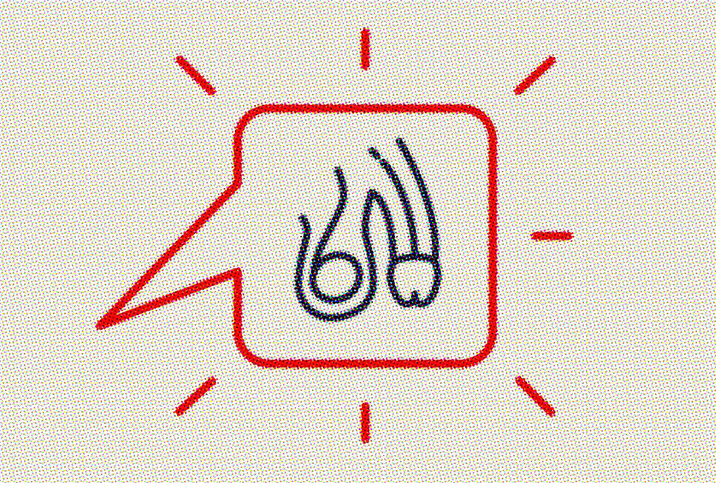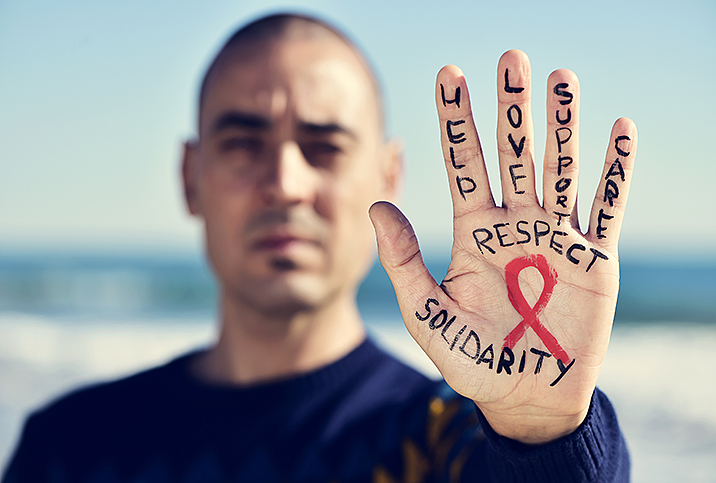How HIV May Affect Erectile Performance

By any count, erectile dysfunction affects a huge number of men and couples worldwide: 47.5 million men in the United States alone, according to one self-reported study.
For men living with HIV, the experience of lowered erectile performance comes with significant challenges and additional considerations.
ED & HIV
Research indicates erectile dysfunction is common for 33 to 75 percent of men living with HIV. While statistics regarding the frequency of erectile dysfunction among men in general vary wildly, it's staggering to think about how prevalent the symptoms of ED or indicators of ED are among this particular population.
It can be difficult for individuals living with HIV to receive comprehensive and holistic health care without their doctor's office visits being dominated by the issue of HIV or issues related to the virus. Because ED can be attributed to any number of significant biological or psychological conditions or symptoms, tracking the root causes and common contributors to erectile dysfunction among HIV-positive populations can be extremely complex.
Mental & physical factors
The psychological and emotional factors that negatively influence erectile function are similar for HIV-positive individuals and those living virus-free. Depression, anxiety, general stress, self-image and other mental health conditions are some of the conditions most frequently associated with ED, regardless of HIV status, though living with HIV does tend to come with an increased frequency for those health conditions and additional difficulties gaining comprehensive care relating to mental health services.
HIV-positive individuals are subject to significantly more complex contributing factors and mitigating elements when it comes to ED's physical influences. Two people living with HIV can have vastly different options for treatment depending on many aspects of a person's experience, including the era of diagnosis, their medicinal history, and a multitude of general health symptoms and conditions. For example, body fat percentage has been noted across the board as a potential influencing component of erectile dysfunction. While HIV medication has come a long way in 30 years, issues with retaining and losing body fat are still common for individuals taking antiretrovirals and other HIV medications. Regardless of HIV status, ED can be an early indicator of undiagnosed heart disease for any man.
Testosterone levels also play a key role in erectile performance. Testosterone production can be lowered or otherwise influenced by many different HIV-related aspects of health, including lowered counts of CD4 cells (white blood cells that fight infection) and a reliance on certain medications. Because lowered libido and other testosterone-associated experiences are common for men with HIV, it can be difficult to access screening or adequate dialogue about testosterone levels with a health professional.
Certain observations may prove useful in determining whether or not a person's experience with ED can be directly attributed to testosterone levels. One such indicator is the frequency of spontaneous erections at night or during sleep. Of course, it can be difficult to monitor physical functions while sleeping, but regular nighttime erections can signify high enough testosterone levels to rule low-T out as a primary cause of impaired erectile performance.
Treatment complications
Typical first-line treatments for ED can be affected by psychological conditions often associated with HIV-positive people, and the pharmaceuticals used to treat erectile performance issues can be impacted by the presence of certain HIV treatments within the system. Effectively evaluating such interactions requires a complete analysis of an individual's medical history, including the medicinal use (prescribed and unprescribed) of substances and narcotics, general health practices, illness history and more.
Certain medications used to treat patients living with HIV can actually increase the presence of ED medications in a person's system, creating a greater risk of complications, while other HIV medications can lower the quantity of ED medication in the system compared to men taking ED meds in similar dosages. This, of course, lowers the effectiveness of the ED medications.
The effectiveness of mainstream ED medications could be lessened by the various social and psychological factors that come with HIV. While the applicable intention of these medicines is to increase blood flow to the penis and thereby make nerve endings more susceptible to touch, a person's psyche can play a role in whether they work or not.
Alternative considerations
Erectile performance is influenced by so many big-picture and day-to-day elements. A few other recommendations to consider for men living with HIV and erectile dysfunction may include:
- Making lifestyle changes such as diet, exercise and smoking habits
- Improving communication and sexual practices with a partner or partners
- Increasing the frequency of life-affirming social patterns and personal mindfulness exercises
- Limiting or eliminating consumption of various recreational drugs and substances that may impact libido, blood flow or personal self-image
It's worthwhile to note the importance of emotional and psychological support for individuals who are experiencing erectile performance issues—especially those living with HIV. If you do not have a reliable support network around you in the form of family, friends or colleagues, consider asking your doctor or medical team about options available to you in pursuing counseling or other support services.
Avoiding harmful stereotypes and conjecture
Impaired sexual or erectile performance is often mistakenly correlated with specific identity issues, such as a lack of "manliness" or decreased value as an adult, an individual and a potential partner or lifemate. These false equivalencies can cause severe psychological trauma and detract from the validity and necessity of addressing sexual health concerns in all men, regardless of HIV status.
If you are living with HIV and think you may be suffering from any of the symptoms or conditions discussed here, be sure to consult a physician and advocate for your concerns to be taken seriously and evaluated comprehensively. If you feel your fears or questions are not being taken seriously, or your areas of concern are being invalidated in any way, consider seeking help from an advocacy group in your local area or through online resources available to you.


















